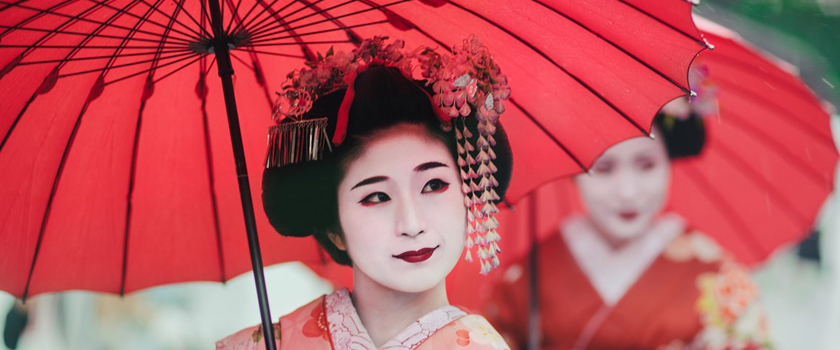Japan has small land area and population, but the language is very interesting.
1) The language of men and women are different.
In Japan, you can obviously feel the men and women, a man in a strong position, while the Japanese women’s softness and virtuous enjoy good reputation in the world. Seems to be corresponding to certain terms of the Japanese took part in male terms or female terms, the male term is relatively rough, sometimes not use the honorifics, especially for an acquaintance, while women are generally honorific, The most obvious is that most of the female term there will be “wa(わ)” to do the phonetic ends.
However, with the development of the times, something which involves some of the more personalized is not very focused, as long as you can master the use of good honorific like. Of course, if you want to settle in Japan, may wish to consult the locals.
Read Also: Simplified and Respect in Japanese
As to the difference between men and women .we should talk about the neutral trend of the modern Japanese. Neutral trend of the Japanese only learned basic Japanese people know that the Japanese on the first-person expression, many of which gender, male “ぼく” , while women use “あたし”. These differences, I am afraid that all textbooks are enumerated clearly.
But now, a lot of movies and television or television programs as well as popular songs, often hear women, especially young women use “ぼく” of male terms to refer to themselves. Interview for this phenomenon saying: If you use “ぼく” feeling on equal footing with men exchanges. One is that if the use “あたし” will have their own weakness, as men feel. Thus, it is no longer rigidly adhere to the terms of the distinction between men and women.
Are you looking for Japanese Translation? We are here for your assistance.
2) Sentence’s length determine the relationship.
The Japanese are a very polite, very afraid of the rude ethnic Japanese in addition to the great emphasis on the ritual of daily life, to speak words very carefully, we can speak two words from the dialogue which, the affinities between. The same meaning as objects, and a variety of expression. Japanese will select words according to the object if the other party of their friends, family, and usually use short words; if you feel the other party is not familiar with, it would be polite, more honorific language, words longer; if the other party elders or superiors, but also they want to do the action to “respect language”, the action to “humility word”, so the longer the word.
3) Must listen to the last word
Japanese verbs often on the end of the sentence, for example, we often see someone online to talk about “什么什么的干活” is to imitate the Japanese verb set.
In many cases, when we listening to Japanese speaking must listen to the last word, while you know their means is positive or negative. Speaking with the Japanese should not be impatient.
Also, read how we help localize the project related to Japanese language for our client. Read the case study here
Japan in the Tang Dynasty was madly learning. Massive Chinese were brought in. Therefore, the Japanese have a lot of Chinese vocabulary, from the literal meaning to understanding, must let the Chinese highly misunderstanding, however, once they knew the true meaning, all people always in convulsions.
In Japanese, “愛人” means mistress not the meaning of lover/wife in Chinese. When Chinese people go to Japan to attend an academic conference and introduce his lover/wife as”こちらは、ぼくの愛人です”to the Japanese, the Japanese certainly can’t understand since in such an important occasion we all bring with ours wife, Well, you with “mistress”. They can’t expect the Chinese people are so open. This is what a shameful thing for the Chinese people.
5) Japanese language taboo
The Japanese have a lot of language taboo, such as “bitter” and “death” even harmonics of some words are taboo, such as the pronunciation of the numeral “4” is the same pronunciation of “死”, and “42” is verb form of “死” , so hospitals and restaurants generally do not have 4th beds or 42th rooms. The user’s phone is also resent “42”, the prison general have no 4th cell. Also,”13″ is a taboo number, many hotels there is no “13” floors and “13” room, there is no “13” apron in Haneda Airport. It should be avoid saying go, back, return, leave, broken, thin, cold, light, off and repeat, again, broken, cut off the ominous and sinister language in weddings and other festive occasions. Store opening and completion of the new store, avoid fireworks, collapse, crash, tilt, loss, decay and fire phase of the language. Conversation avoid talking about people’s physiological defects, do not say that word, such as big a dwarf, fat pier, bald, pock, blind and deaf, dumb, etc., and said that people with disabilities for physical barriers to persons, said the blind for the eyes is not free persons, called the deaf for the ears not free, and so on.



